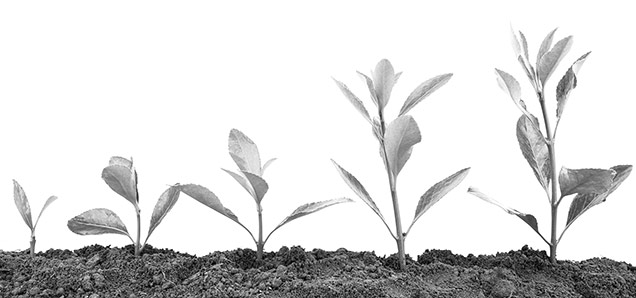Notes From Day Seven: The Five Commandments of eating
 CREDIT: THINKSTOCK
CREDIT: THINKSTOCKGrowing some of your own food can be a fascinating process
In a not overly recent but obviously relevant article called The Pleasures of Eating, farmer, theologian and writer Wendell Berry argues for an approach to eating that has been gradually making inroads into our own thinking and habits.
Berry has been writing for many years to inspire a love of land, of things that grow, of people and of local communities. Though living and farming in Kentucky, he offers insight that has direct relevance to our Canadian context.
For example, one of the main characteristics of the Industrial Revolution was to replace people with technology. He points out the irony that we continue to be surprised by the appearance of unemployment even though our investment and industrial goals require the elimination of as many jobs as possible.
He laments something that can be seen, in North America and all through the “developed” world, namely the accumulation of power by a few. In Canada we might see this in the apparently growing disconnect between the Prime Minister's Office (PMO) and the many who advocate for democracy.
The PMO appears to be overly concerned to advocate for corporations and economic globalization. This means that increasingly factories and farms in our part of the world have to compete with every cheaper enterprise on the planet. As far as I can tell this is a race to the bottom.
When journalist Bill Moyers interviewed Berry, the author reflected on his Christian understanding of the world. He said that this world and our life in it are conditional gifts. If we don't know our world, if we don't love it, and if out of that love we do not care for it, we forfeit our right to its benefits. We forfeit our right to reap its enjoyments. In other words, this world is the home given to us by our Creator. And as the opening poem and stories of the Bible reveal, and as many aboriginal traditions remind us, we as humans are deeply connected with the whole creation and have a very large role in caring for it and bringing out the best that it has.
Berry's article on eating can help us rediscover this connectedness. He offers what I call the Five Commandments of Eating, which are intended to restore our appreciation of those connections (actually he has seven, but I'm leaving two out for the purposes of this article).
1. Grow some food. This can be done in a variety of ways. A neighbour of mine grows edible herbs in flowerpots. My wife and I made some planting boxes in our side yard. Use the natural energy cycle: soil to seed, seed to flower, flower to fruit or vegetable, fruit to food, food to compost, and compost to soil. It's an amazing cycle, much more interesting than what we find sitting in front of a gaming screen.
2. Prepare your own food. Our family discovered a squash that if you puncture and heat it will give you “spaghetti” when you cut it open. Baking bread, making simple but tasty stews — these are a few of the many ways to prepare food that are within reach of the beginner. When you try them you will likely enjoy your food more, feel healthier, and save money.
3. Learn about where food comes from. A few minutes online a day can give you insight into how food arrives on your table. Likely when you do this you will develop an appreciation of local food sources. After all, the fact that many foods are processed in factories hundreds of kilometres away makes them less, not more, interesting.
4. Get to know local food producers. This means developing relationships with the farmers and vendors at the farm markets in and around London, or wherever you live. We pay a little more for sausages from a butcher whose shop I can see from a window in my study at home. It is tidy, always smells great, and is stocked with meats from local farms. And as much as possible we buy our fruits and vegetables from farm owners who also are friends.
5. Become wary of processed foods. What is in them? How much of their nutritional value has been destroyed during the processes? How have the foods been cosmeticized to make them look manufactured and “presentable?” How are “food” manufacturers destroying genetic diversity, and what myths do they advertise about themselves to make them appear more environmentally responsible than they are?
Spring is here. The farms around our cities are getting back into action. So now is a good time to think a little more about where food comes from and to renew some of those connections that make food enjoyable and satisfying.
Editorial opinions or comments expressed in this online edition of Interrobang newspaper reflect the views of the writer and are not those of the Interrobang or the Fanshawe Student Union. The Interrobang is published weekly by the Fanshawe Student Union at 1001 Fanshawe College Blvd., P.O. Box 7005, London, Ontario, N5Y 5R6 and distributed through the Fanshawe College community. Letters to the editor are welcome. All letters are subject to editing and should be emailed. All letters must be accompanied by contact information. Letters can also be submitted online by clicking here.













